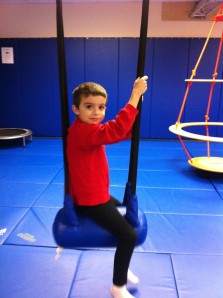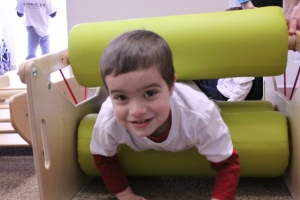It was a typical dinner Monday night when everyone was talking over each other and no one was eating.
There was bickering. Potty talk. Anything and everything except actual eating.
Since this happens quite frequently, I have a mental list of “conversation” topics that usually redirect everyone long enough to get some food into them in between sentences.
When I say “conversation”, I mean mostly monologues of non-related topics, but each kid is taking a turn with it, allowing the others to eat.
And when I say “topics”, I mean I ask them about Minecraft. So just one topic. Singular.
Tonight was no exception.
I entered the cook time into the microwave and turned towards the boys at the table. “So, guys, if you could create your own Minecraft Mod, what would you do?”
(ed note: a mod is a modification made to the Minecraft code. Gamers write code to create these mods to add additional things to the original game. My friend Bec at Minemum can explain it all. I know nothing about it except that my kids are obsessed with watching videos about them and begging me to download them.)
“I would create a space world where things could explode!” replied Howie.
“I would create a place where animals could go and there would be explosions!” said Lewis.
I took my dinner out of the microwave and sat down at the table.
“Well,” I said, “if I was creating a mod, I would make a sensory gym mod.”
I gave Tim a little smile. I was completely kidding. I half expected them to come out with a “What?! That’s ridiculous!” and go back to discussing how to explode creepers and zombies.
Howie looked right at me. “A sensory gym mod?”
“Sure,” I said. “It could have stuff in it like at SenseAbility Gym.”
Both Howie and Lewis were quiet for a moment.
“We would call it The SenseAbility Craft Mod!” said Howie. “We could craft a trampoline out of leather and and blocks. And it would be bouncy like slime. You’d make it on the crafting table!”
“And you could make a bolster swing too, ” said Lewis. “You would need string. And something to sit on.”
I sat in stunned silence.
Howie’s eyes got huge and bright.
“And the villagers – they would be autistic villagers! They would be the ones who could be in the SenseAbility mod.”
Tim and I made eye contact. I gave him the “wow” look with my face.
“It would spawn autistic villagers and they would be the only ones in the village. And they would go up to each other and would make the villager sounds and understand each other.” Howie was on a roll and was not stopping. “And they would go on the trampoline and the swing.”
“Could you craft a weighted blanket?” asked Tim.
“Oh yes, you could do that.” Howie replied.
We were all giggling a little at the ideas, throwing them out one by one.
“You could make a square ball pit with blocks and craft something to put in it!” Lewis exclaimed.
“Could you make a wooden slide?” Tim asked
“YES!” Howie yelled. “You could make a slide.”
“You would need some fidgets too in your inventory,” I said to Howie, “just in case the villagers needed them.”
“Yes,” he said. “And the autistic villagers could trade emeralds for fidgets so they could feel better.”
He looked at me. “Spawning an autistic villager is rare but special, you know.”
I smiled at him. “Yeah buddy, I know.”
Howie got up from the table. “Let’s play ‘SenseAbility Craft’ right now!”
“Wait, what? Right now? You didn’t eat anything!”
But Howie was already gone and Lewis followed right behind. They went into the other room and pretended to be the autistic villagers, happily trading for fidgets.
I cleaned up their full plates of food and turned to Tim.
“You better start those Java and coding lessons with Howie. I think he’s on to something.”
**********
It was December 2009 when I was listening to the developmental pediatrician list off the “red flags” for autism that she saw in Howie. No pretend play, no ability to think of objects as anything other than their literal use. Focused on the spinning wheels of the car and not the car itself. Can’t do a pretend birthday party.
It was August of 2011 when I heard the same thing for Lewis.
“You’ll need lots of work and therapy to develop those skills. I’m not saying he won’t ever have them, but they won’t come naturally.”
I left the office each time with my view of the world and my boys tipped on its side. I was crushed – mostly by the guilt of what I didn’t see. What could I do to help him? Could I help him?
Turns out my autistic villagers just needed to figure it out in their own time and their own way, through a game that has no boundaries except the limits of their imagination and creativity.
Which, despite what we were told, seems to be endless.
I’m looking forward to the day when they create this SenseAbility Craft Mod. I hope they let me play and be a part of their incredible, creative and imaginative world.
“Red sun rising in the sky
Sleeping village, cockerels cry
Soft breeze blowing in the trees
peace of mind, feel at ease.” – Sleeping Village by Black Sabbath




















